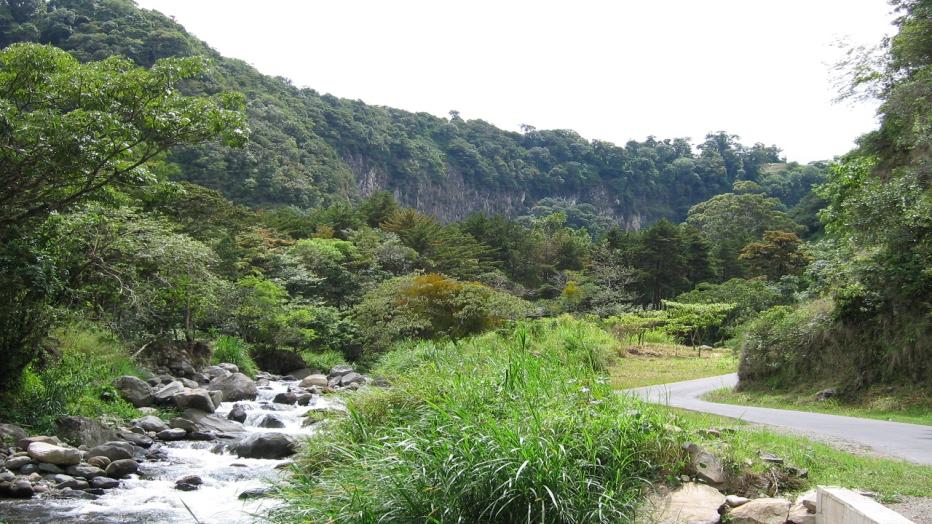
We now live in what many recognize as the Anthropocene Epoch, a term coined to denote the interval of geologic time, commencing around 1950, in which humans began significantly impacting the Earth’s natural processes. Global population growth and resource exploitation have altered the environment in ways that were unimaginable just a few decades ago. At Jacobs, we’re acutely aware of the profound changes humans have caused and their potential repercussions. It makes sense then, that our vision is to provide solutions for a more connected, sustainable world and that our professional staff is continually devising and implementing innovative and effective strategies to achieve this.
This is a vision shared by many organizations, including the non-profit group Ecologists Without Borders (EcoWB), which was founded by three fisheries biologists who shared a vision of harnessing the expertise, creativity and altruistic impulses of their colleagues to alleviate environmental problems around the world. Realizing they couldn’t tackle the world’s problems alone, the founders formed EcoWB to facilitate the transfer of ecological knowledge and expertise to communities in need of assistance. Their mission is to provide ecological assistance to at-risk communities around the world so they can avoid or mitigate, and adapt to, detrimental environmental change – and they’re concerned with the long-term health of terrestrial and aquatic ecosystems and the human activities and natural processes that affect them.
EcoWB’s mission and approach resonated with Jacobs fisheries biologist David Fornander, prompting him to get involved. Throughout his career, David has recognized that the cultural, social, economic and ecological dimensions of problems people face must be understood, integrated, and simultaneously addressed to develop truly sustainable environmental solutions that enhance their well-being.
Dr. Fornander, a technologist professional in our Boise, Idaho, office has more than 20 years of experience analyzing the structure and function of natural ecosystems, and the physical, biological and human components and processes that comprise them. His research focuses on land use strategies in and around marine, estuarine, freshwater, and terrestrial systems, and the associative effects they may have on specific species and the whole system. Much of David’s recent work focuses on environmental management and the interplay of ecological and political forces that shape the development and implementation of conservation and restoration strategies at various scales.
David was invited to join the EcoWB Board of Directors in 2016. As one of over 200 professionals who possess ecological training and experience, and who are willing to volunteer their time and expertise to help EcoWB fulfill its mission, David has been able to effectively leverage his professional expertise and satisfy his altruistic endeavors. Through EcoWB, David has supported marine protected area management and development, invasive species eradication programs, restoration and protection of mangrove and coral reef systems and promoted sustainable fisheries. Other examples of past and ongoing EcoWB projects include sustainable aquaculture in northern Cambodia; an aquaculture and aquaponics project in Fiji; a fisheries/mangrove ecosystem research and conservation project on the Pacific coast of Mexico; a water hyacinth removal project in Kenya; and a fisheries improvement Project in Baja California, Mexico. These projects and others are described on the EcoWB website.
When asked why he remains engaged with EcoWB and continues to do the work he does, David says, “I think in the light of our rapidly changing environment it is clear we must no longer perceive ourselves as apart from nature, but rather a part of the system, and subject to the same natural laws as all the other species within it. It’s our responsibility as global citizens to do all we can to sustain the ecological processes and diversity we all depend upon for life on this little blue planet.” But he adds that his three boys would tell him that The Lorax by Dr. Seuss said it much better: “Unless someone like you cares a whole awful lot, nothing is going to get better. It’s not.”
About EcoWB
Today, more than ever, people are connected globally, not only through communication and trade, but increasingly by the human-induced, large-scale atmospheric and oceanic processes that affect our lives and the places we live. Like David, many of us want to help solve the growing environmental problems of our world. Unfortunately, with the myriad of commitments that dominate our personal and professional lives, we often find it difficult to know how we might donate our precious free time for the greater good, or how to navigate the practicalities and logistics of working overseas.
EcoWB eliminates this hassle and provides a straightforward path for volunteers to use their specialized knowledge or skills to help at-risk communities and ecosystems around the world. EcoWB also partners with other organizations to provide assistance where needed, facilitating the exchange of ecological knowledge and resources, and empowering people through education and technical assistance so they can better cope with environmental challenges. EcoWB’s network of volunteers consists of a multi-national cadre of professionals from a wide variety of disciplines, including biologists, foresters, ecologists, resource managers, botanists, water resource engineers, hydrologists, wildlife specialists, social scientists, agriculturalists, GIS professionals, policy/government specialists, fundraisers and marketing experts. Does one of these categories describe you?
EcoWB is always seeking new project opportunities and partnerships. Whether you want to propose a project, volunteer your time, make a donation or consider a teaming arrangement, EcoWB would gladly accept your involvement and interest.












































